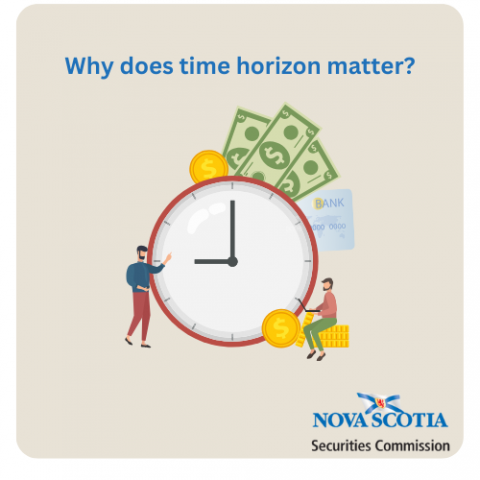Submitted by nsscadmin on

We’re nearing the end of 2024 and this time of year many people like to review their finances and financial plan to make sure everything remains on track. It can be hard to do that without knowing your time horizon, which is when you’re going to need the money you’ve invested.
Your time horizon has a major impact on your investing plans, including how you invest, the amount of risk you should be taking on, and they type of investments you should purchase.
Your time horizon is determined and affected by several aspects of your life. This includes: your age, health, employment status, rent/mortgage, how many dependents you have, when you plan to retire or other financial goals. None of these things are static throughout your life. You get older. Your health changes. Your employment status can change multiple times. Your planned retirement date can move forward or backward. It is important to recognize how these changes can impact your time horizon.
For example, a 25-year-old just starting their career, has a much different time horizon than a 60-year-old who’s planning to retire in a few years. The 25-year-old likely can take on more risk since their time horizon is much longer. The 60-year-old’s short time horizon likely means high risk, long-term investments are not suitable for them.
When devising your investment plan, it is prudent that you know your time horizon and that you take it into consideration. One last thing to remember about time horizon is that not all your investment goals will have the same time horizon. You can diversify your time horizon the same way you diversify your investments. The time horizon for your retirement is much different than the time horizon for the Registered Education Savings Plan (RESP) you’ve opened for your child’s post-secondary education. Make sure you also know the time horizon for your specific investment goals, as this can mean different investments are suitable for your different goals.
